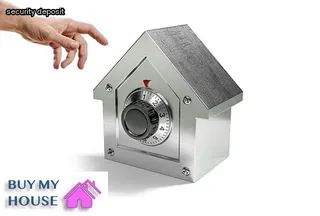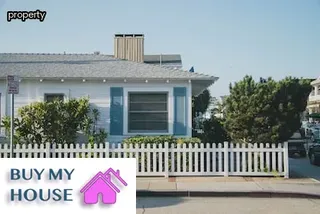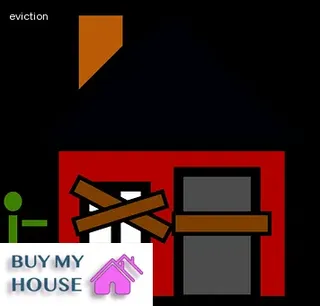Tenants in Oregon have certain rights and responsibilities when it comes to property law. Landlords must provide tenants with information regarding the state's landlord-tenant laws, which includes details on tenant property damage disputes.
Tenants should be aware of their right to receive a written notice outlining the rules and regulations of the rental agreement prior to moving in. In addition, tenants have the right to hold landlords accountable for any damages that occur due to neglect or lack of maintenance.
It is important for tenants to document any damages that take place before and after move-in and keep all receipts for repairs or replacements. Likewise, tenants are responsible for taking reasonable care of their rental unit and notifying landlords of any problems as soon as they arise.
When there are disagreements between landlords and tenants regarding property damage disputes, mediation or arbitration may be sought out by either party in order to reach an amicable resolution.

The issue of normal wear & tear and property damage can be a source of contention between landlords and tenants. It is important to understand the difference between these two concepts in order to properly respond to tenant disputes.
Normal wear & tear is the deterioration of property over time due to everyday use, while property damage is any intentional or unintentional destruction of the rental unit that occurs as a result of tenant negligence or misuse. In Oregon, it is the responsibility of the landlord to repair damages caused by normal wear & tear, while tenants are responsible for any repairs resulting from their own negligence or misuse.
Before attempting to resolve any tenant dispute related to property damage, it is important for both parties to understand what constitutes normal wear & tear versus what constitutes property damage under Oregon law.
As an Oregon landlord, it is important to be aware of the state’s tenant-landlord laws in order to handle tenant property damage disputes appropriately. Mistakes such as failing to give proper notice or not following the correct procedures can have serious legal consequences.
In order to avoid common landlord mistakes, landlords should make sure they are familiar with the applicable statutes, regulations and court decisions regarding tenant damage. Landlords should also keep good records of any communication between themselves and their tenants, including notices and repair requests.
Furthermore, Oregon landlords need to be aware that they cannot enter a tenant's premises without written notice and consent, so it is important to take all necessary precautions when dealing with tenant damage on their property. Finally, landlords must provide tenants with a reasonable amount of time to repair any damages caused by them before seeking legal action against them.
By understanding these laws and avoiding common mistakes, landlords can effectively manage tenant property damage disputes in Oregon.

When dealing with difficult tenants on rental properties in Portland, Oregon, it is important to be familiar with the landlord-tenant laws that govern the state. Landlord-tenant statutes are important for understanding how to handle tenant property damage disputes, as well as learning how to protect a landlord's rights when it comes to eviction proceedings.
A landlord should know the rules and regulations relating to tenant security deposits, rental agreements, and other legal matters. It is also important for landlords to understand their rights about entering a tenant's premises and guidelines for handling disagreements between them and their tenants.
In order to successfully resolve any issues with difficult tenants, landlords must adhere to the standards prescribed by Oregon law and ensure that all parties involved are aware of their respective rights.
Working with a professional property manager is the best way to protect yourself and your property from tenant damage disputes. Property managers understand the laws and regulations associated with landlord-tenant law in Oregon, so they can help ensure that you are in compliance.
They can also handle any damage disputes between the landlord and tenant. A property manager will be able to investigate the tenant's claims and gather evidence if necessary.
They can also negotiate a settlement or take legal action if necessary. Furthermore, they are knowledgeable about the various options available for resolving conflicts, such as mediation or arbitration.
With their expertise, they can help you find a solution that works for both parties while protecting your rights as a landlord. Professional property management is an invaluable resource when dealing with tenant damages disputes in Oregon, as it provides maximum protection against costly legal fees and damages to your property.

When a tenant causes property damage and attempts to repair it themselves, landlords may feel their rights have been violated. Fortunately, under Oregon law, landlords are entitled to compensation for any unauthorized repairs made by the tenant.
In order to obtain such compensation, it is important that the landlord document any damages and communicate with their tenant in writing. The landlord can then take legal action if they are unable to come to an agreement with the tenant regarding payment for repairs.
It is also important that the landlord take appropriate measures to ensure these types of situations do not occur again in the future. This may include including clauses in tenancy agreements that clearly outline what steps tenants should take when dealing with property damage disputes, as well as providing clear instructions on how tenants should report damage or maintenance issues.
Finally, when pursuing compensation for unauthorized repairs due to property damage, landlords must remember that Oregon law grants tenants certain protections and it is important to be mindful of those rights when seeking repayment from the tenant.
As a landlord, it is important to be proactive in minimizing the wear and tear of your rental property. The best way to do this is to ensure that tenants understand the expectations clearly from the beginning of their tenancy.
Start with an up-to-date Oregon Landlord-Tenant law handbook that outlines all tenant rights and responsibilities. Include a detailed move-in inspection checklist and document any existing damage to the property before they move in.
It is also beneficial to have tenants sign an explicit agreement that outlines what constitutes normal wear and tear versus damages caused by negligence or intentional destruction, as well as how you will handle tenant property damage disputes. Additionally, landlords should conduct regular inspections throughout the term of the lease and document any changes to maintain records for future reference.
Setting clear expectations from day one can help minimize misunderstandings between landlords and tenants when it comes to who is responsible for damages during tenancy.

As a Portland landlord, it's important to understand the Oregon Landlord-Tenant Laws and how to handle tenant property damage disputes. Regular preventative maintenance is key to prolonging the life of your rental property.
To ensure that you're in compliance with state regulations, make sure to perform routine inspections of your rental units. This will help you identify any potential problems before they become an issue.
Additionally, create a detailed lease agreement outlining specific rules on damages and repairs, such as what actions tenants should take if they notice any damage or need repairs done. Keep proper records of all maintenance tasks performed and document any tenant complaints or requests for repairs in case of future disputes.
Finally, establish clear lines of communication with tenants so that they know who to contact when needed, and make sure that any issues are addressed in a timely manner.
Regular inspections are an important part of Portland rental properties and can provide a number of benefits for both landlords and tenants. Regular inspections help landlords detect any tenant property damage disputes early on, allowing them to address issues before they become more costly or difficult to manage.
By having regular inspections, landlords can also keep up with the condition of their rental property, including any repairs that need to be made or updated amenities that could improve the quality of the living space. Furthermore, regular inspections provide tenants with the assurance that their living environment is safe and secure, as well as helping them better understand Oregon landlord-tenant laws in regards to tenant property damage disputes.
With regular inspections, tenants can protect themselves from potential misunderstandings or disagreements about damages or repairs resulting from tenant property damage disputes.

As an Oregon Landlord, it is important to understand when it is necessary to replace carpet or paint in order to maintain a quality rental unit. Carpet and paint can both become damaged over time, and when a tenant leaves the property, landlords should assess whether the damage is beyond simple repair.
If there are deep stains on the carpet, holes in the walls, or chipped paint that cannot be fixed with a quick patch job, then replacement may be required. However, if the damage is minor and only affects a small section of carpet or wall space, then repair might be more cost effective than complete replacement.
Additionally, landlords should consider how long they plan to keep the rental property and whether any changes will increase its value upon sale. Knowing when to replace carpets or paint is essential for maintaining a quality rental unit and making sure that tenants are satisfied with their living environment while also protecting your investment in the property.
When a tenant leaves without paying for damages they caused, the landlord will need to take swift action to protect their rights. In Oregon, landlords have the right to deduct the cost of repairs from the tenant's security deposit.
If there is not enough in the security deposit to cover the damages, then landlords can attempt to contact the tenant and negotiate a payment plan. If this fails, landlords can file a civil lawsuit against the tenant.
As part of this lawsuit, they may be able to seek reimbursement for repair costs as well as court fees and other related expenses. Landlords should also consult with an attorney who is knowledgeable about landlord-tenant laws in Oregon before taking any legal action.
Additionally, they may be able to seek advice from agencies that provide education and resources on rental housing issues such as Housing and Community Services of Oregon or The Oregon State Bar Tenant-Landlord Law Project.

When a dispute arises between a landlord and tenant over property damage, it is important to keep accurate records in order to properly document the details of the incident. Landlords should take photos or videos of the damaged property before and after the repair process to illustrate the extent of the damage.
It is also recommended that both parties write down their accounts of what happened and exchange copies with each other. Additionally, any communication between the landlord and tenant regarding the dispute should be documented in writing.
Having all this information on hand can help landlords and tenants reach an agreeable resolution more quickly. In Oregon, it is also important to be aware of state laws that may apply to damage disputes such as when a tenant must provide written notice if they plan to withhold payment due to alleged damages.
A landlord who faces a tenant dispute should familiarize themselves with applicable laws so they understand their rights and responsibilities during the resolution process.
When you're a landlord in Oregon, it's important to be knowledgeable about tenant property damage disputes and the laws that govern them. One of the most important things to consider is checking a potential tenant’s credit history before renting out your property.
This can help protect you from losses associated with unpaid rent or property damage. To check a potential tenant’s credit history, you should first obtain written authorization from the tenant.
You can then use a reputable third-party credit bureau or consumer reporting agency to get their credit report. It’s important to make sure that you are following all applicable laws when obtaining this information and only use it for rental decisions.
You should also remember to provide a copy of the report or summary of its contents if requested by the applicant. Taking this step will help ensure that your property is protected and that you have all of the necessary information to make an informed decision on tenants.

When renting out a property in Oregon, it is important for landlords to understand local laws and regulations to protect themselves from liability claims. According to Oregon law, when a tenant vacates the premises, the landlord is obligated to provide an itemized list of any damages caused by the tenant and must provide an opportunity for that tenant to dispute that list.
The landlord should also take photographs of any damaged items before they are removed. When a tenant disputes any damage charges, the landlord must keep detailed records of all communications with that tenant.
The landlord may choose to push forward with eviction proceedings if payment for damages has not been made within 45 days. Landlords should also be aware of the time limits for filing a claim against a tenant's security deposit when it comes to property damage disputes.
In Oregon, landlords have 90 days from the date of move-out to file such a claim or forfeit their right to do so. Keeping these laws in mind can help landlords protect themselves from liability claims in case of property damage disputes with tenants.
When it comes to rental properties in Portland, Oregon, landlords must be aware of the potential issues that can arise from unauthorized pets, smoking, or tampering with utilities in their rental units. The Oregon Residential Landlord and Tenant Act outlines tenant rights and responsibilities as well as the landlord's rights and responsibilities when it comes to tenant property damage disputes.
Landlords should have a clear policy in place that outlines their expectations for tenants so that issues can be addressed quickly and efficiently. In order to avoid potential disputes, landlords must ensure that all tenants are aware of their policies regarding unauthorized pets, smoking, and utilities tampering before signing a lease agreement.
If a tenant violates any of these policies, landlords can take action by issuing warning notices or legal notices in accordance with Oregon law. Additionally, it is important for landlords to document any repairs or expenses related to the unauthorized pet, smoking or utility issue so that they may be able to recover costs from the tenant if necessary.

When it comes to recovering unpaid rent and security deposits during a tenancy termination, Oregon landlords must abide by certain regulations. State law requires that landlords provide tenants with a written notice at least 30 days before the end of the tenancy, informing them of the amount of rent and any other payments due.
After a tenant moves out, the landlord has 31 days to refund any remaining security deposit and/or unpaid rent (minus applicable deductions). If there is an issue over disputed deductions or if the tenant fails to pay, landlords may pursue legal action through small claims court.
Landlords should also be aware of their responsibility to inventory and store tenant property in case they are unable to collect rental fees or damages. By being familiar with all aspects of state laws regarding tenant property damage disputes, landlords can ensure that their rights as well as those of their tenants are properly enforced.
Oregon landlord-tenant laws require that landlords must provide tenants with a safe and habitable living environment, which includes periodic maintenance and repairs. When tenants move into their new home, landlords must ensure it is in good condition and that any damages or poor maintenance from previous tenants have been fixed.
If the tenant notices unsatisfactory living conditions caused by poor maintenance from previous tenants, they should contact their landlord immediately to inform them of the damages and request they are fixed. Landlords may be reluctant to make repairs if they believe it was caused by the previous tenant’s negligence, so it’s important for the current tenant to document all evidence of damages before contacting their landlord.
The tenant may be able to use this evidence to prove the unsatisfactory living conditions were not caused by their own actions. Furthermore, if their landlord neglects to make necessary repairs within a reasonable amount of time (which could vary depending on the severity of damage), Oregon law allows tenants to take legal action against them.

Having an effective written lease agreement is essential to protect the rights and interests of both landlords and tenants in the event of a tenant property damage dispute. It should clearly outline all the rules and regulations that tenants must abide by, including specific rules for tenant property damage.
Landlords should also include a thorough inspection process where they document the condition of any rental property before tenants move in, as well as regular inspections during tenancy to help better identify any potential damage. Written leases should also detail what happens if a tenant fails to pay rent or damages any rental property, including how much they will be charged for repairs and any legal action that may be taken.
Having an effective written lease agreement helps landlords enforce their rules and regulations while giving tenants clear expectations on how to properly care for their rented space.
Under Oregon law, landlords have the right to seek compensation for property damage caused by their tenants. The first step in obtaining this kind of compensation is to become familiar with the state's landlord-tenant laws and regulations.
Landlords should be aware that they must document any and all damages to the property in order to make a claim against their tenant. Landlords should also consider setting up an agreement with their tenant that outlines how much each party will pay for repairs and maintenance of the property during the lease period.
Additionally, landlords may choose to pursue civil action against their tenants if necessary. This could include filing a lawsuit or seeking a court-ordered judgment for money damages or eviction proceedings.
Finally, if there is no written contract outlining how much each party will pay for repairs, or if there are disputes over who is responsible for what amount, landlords may want to consider mediation as an option to resolve their disputes without going through the courts.

Low-income landlords in Oregon have several resources available to them when it comes to property damage disputes. The Oregon Department of Justice provides landlord-tenant law guidance, including information and advice on how to handle tenant property damage disputes.
Additionally, landlords can access the Oregon State Bar's Tenant Landlord Assistance Program (TLAP) which provides free legal assistance and referrals to low-income tenants and landlords. Landlords may also be able to take advantage of community development block grant funds administered by the Oregon Housing and Community Services Department that help pay for repairs related to tenant property damage disputes.
Finally, there are a number of non-profit organizations in Oregon that provide financial assistance for repairs related to tenant damage disputes, such as the Portland Affordable Housing Preservation Fund or the Cascades West Council of Governments' Community Development Block Grant program. All these resources can help low-income landlords in Oregon manage tenant property damage disputes efficiently and effectively.
In Oregon, landlords are allowed to charge tenants for damages that have been caused by the tenant, but only up to a certain amount. The amount of money that can be charged is dependent on a few different factors.
First, the rental agreement must include a provision for damage charges and all parties must agree. Then, the landlord must provide receipts or estimates of repair costs from licensed contractors and be able to prove that these costs were necessary in order to fix the damage done.
If this information is not provided then the tenant may dispute the landlord's claims. Furthermore, Oregon state law states that landlords can only charge an amount that is equal or less than what it cost them to repair or replace any damaged items.
This means that landlords cannot charge more than what is necessary to cover their expenses and they cannot collect additional fees as compensation for their time or effort spent fixing any damages. Additionally, any damages caused by normal wear and tear during tenancy is not covered by this rule and the landlord cannot charge tenants for those repairs either.

In Oregon, a landlord has the right to charge a tenant up to one year after the end of their tenancy for any damages done to the property. This includes costs associated with cleaning, repairs and replacement of any damaged items.
Tenants should be aware that they may be held liable for any damage caused by them or anyone in their party during their tenancy. If there is a dispute between the landlord and tenant regarding property damage charges, it is important to understand how Oregon Landlord-Tenant laws apply.
The law dictates that a landlord must use reasonable efforts to mitigate the cost of damages by attempting to repair or replace items instead of simply charging for their full value. Additionally, landlords are limited in what type of costs can be charged against tenants for damages; things such as normal wear and tear or cleaning fees beyond what is necessary are not allowed.
Tenants should also keep in mind that if they are unable to reach an agreement on property damage disputes with their landlord within 30 days after moving out, either party can pursue legal action in court. It is advisable to attempt negotiation before deciding on legal recourse as it can save time and money in the long run.
Normal wear and tear in a rental property in Oregon is the gradual deterioration of a property that occurs over time due to everyday use. This can include things like fading paint, minor carpet stains, or worn out appliances.
Landlords should not expect tenants to cover the cost of replacing items that are just showing signs of normal wear and tear. However, if a tenant causes additional damage beyond what is considered normal wear and tear, such as breaking windows or damaging furniture, then it is up to the landlord to decide if they should be held financially responsible for the repairs.
It's important for both landlords and tenants to understand their rights and responsibilities under Oregon landlord-tenant laws so they know how to handle tenant property damage disputes in an appropriate manner.
In Oregon, landlords must replace carpet when it has become worn out or damaged beyond repair. Depending on the age of the property, landlords may be required to replace carpets more frequently than in other states.
Generally, a landlord should expect to replace carpets in Oregon every 7-10 years, or whenever they become excessively stained or worn down due to tenant damage or normal wear and tear. When it comes to tenant property damage disputes, landlords can look to Oregon’s landlord-tenant laws for guidance on how best to handle them.
It is recommended that property owners familiarize themselves with their state’s landlord-tenant laws before making any decisions regarding tenant property damage disputes.